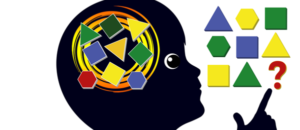Grades, “IQ” tests, and other standardized tests have caused major debates among parents and the education community because many believe they don’t measure the “whole child”.
Although these tests might predict how a child will perform in school, they don’t predict which children will become powerful leaders, accomplished composers, unique artists, great musicians, creative inventors, professional athletes, top-ranked sales people, inspirational teachers, spiritual leaders, or great writers.
In his groundbreaking book, Frames of Mind: The Theory of Multiple Intelligences, Harvard Psychology Professor Howard Gardner asked a different question. Instead of asking, “How smart are you?” he asked the question, “How are you smart?”
What a powerful question for parents to explore with their kids!
In his book Gardner outlines 7 different segments of intelligence. Although each person exhibits some level of ability in all areas, most people tend to shine in two or three areas. As parents and mentors we have an opportunity to help our kids explore each of these segments in more depth so they can discover and further develop their natural talents and abilities.
The 7 intelligences are grouped into what Gardner calls three different “frames of mind”:
- Linguistic Intelligence and Logical-mathematical Intelligence, which are categorized as “academic” and emphasized by public schools and IQ tests.
- Musical Intelligence, Bodily-kinesthetic Intelligence, and Visual-spatial Intelligence which tend to be categorized as artistic abilities.
- Interpersonal Intelligence and Intrapersonal Intelligence which are categorized as “people skills”.
Let’s understand each in more detail and look at how we can help our kids explore each area.
Linguistic Intelligence
Children with strong linguistic intelligence tend to think in words. They love to read, write, play word games, study foreign languages, etc. Professions include areas such as writers, journalists, interpreters, and attorneys. If you think your child has talent in this area, he can explore it further by participating in a journalism club or debate club, by writing, or by studying a foreign language.
Logical-mathematical Intelligence
Children with strong logical-mathematical intelligence tend to think conceptually. They love numbers, patterns, mathematics, and science. Professions include areas such as engineering, computer science, research science, medicine, and accounting. Schools provide a lot of opportunities for children to explore this area of intelligence.
Visual-spatial Intelligence
Children with strong spatial intelligence are strong at working in three dimensions. They tend to love maps, models, and building things. Professions include areas such as architecture and interior design, photography, engineering, and mechanics. You can help your child develop in this area by giving her models to build (including LEGOs!), having her create maps, or by taking a photography class.
Bodily-kinesthetic Intelligence
Children with strong Kinesthetic Intelligence tend to process knowledge through physical touch. They will learn more by doing an activity versus reading about the activity. Professions include areas such as sports, dancing, theater, firefighter, and any work that requires them to be good with their hands. If you think your child has a natural intelligence in this area, encourage her to explore many avenues of physical expression – sports, dance, acting, sewing, woodworking, etc.
Musical Intelligence
Children with strong musical intelligence tend to think in terms of sounds and rhythms. Professions include areas such as performing and/or composing music. Encourage your child to study a musical instrument, participate in a choir, and explore a wide variety of music genres.
Interpersonal Intelligence
Children with strong interpersonal intelligence understand people – they are good with communication, relationships, and getting along with others. Professions include areas such as teaching, counseling, marketing and sales, management, non-profits, medicine, and politics. Provide opportunities for your child to work with and lead others. Examples include participating in Boy Scouts/Girl Scouts, mentoring programs, volunteer organizations, and other clubs.
Intrapersonal Intelligence
Children with strong intrapersonal intelligence really understand themselves. They are deep thinkers and tend to be self-motivated. Professions include writing, philosophy, psychology, clergy, and art. If your child exhibits strengths in this area, give her time to be alone to think and create.
So why is understanding these areas of intelligence so important?
First, if your child tends to struggle in the traditional classroom finding other areas where he can excel can greatly enhance his self-esteem and joy in life. Whenever kids feel they are good at something it enhances their self-esteem and self-confidence.
Second, when kids understand more about “how they are smart,” it enables them to choose extracurricular activities, classes, and careers that leverage their strengths and natural abilities.
And finally, even if your child does well in school, exploring all areas of intelligence will empower your kids to find their passion and purpose in life.
When people create lives based on a passion and a sense of purpose they tend to live happy, fulfilling lives.
I invite you to share this article with your kids and have fun exploring!
*** The end ***
Please share your comments below!
Did you know that learning is a skill?
Help your kids develop a learning mindset.
Download “The 4 Truths of Learning”
Adventure well my friend!
Copyright (C) 2011 – 2020 Renaye Thornborrow. All Rights Reserved.










